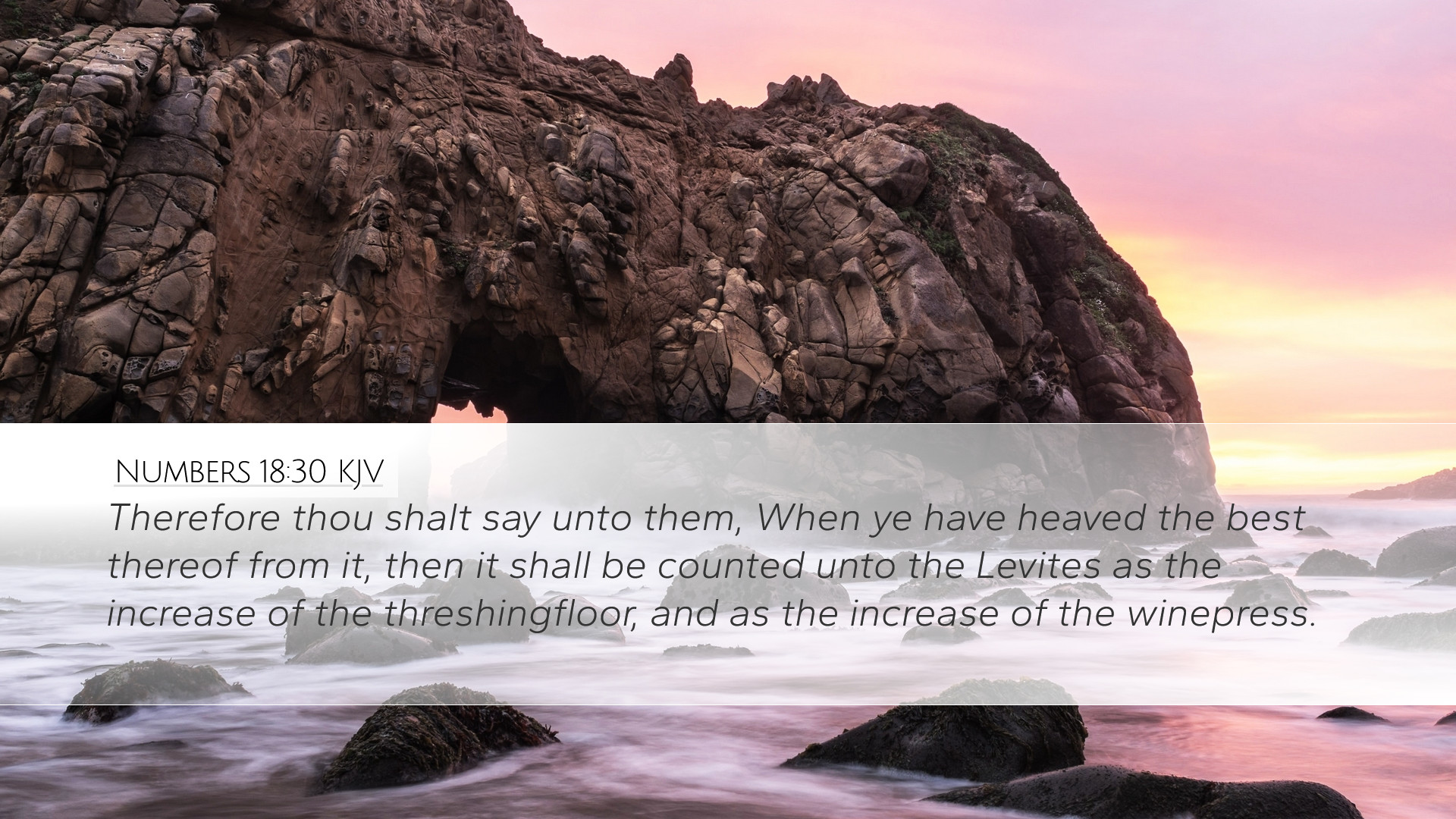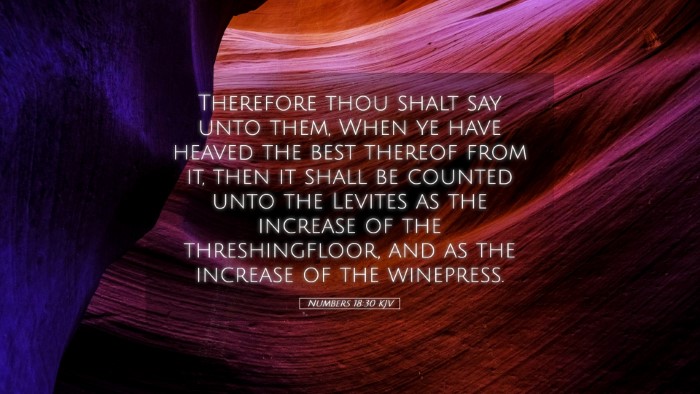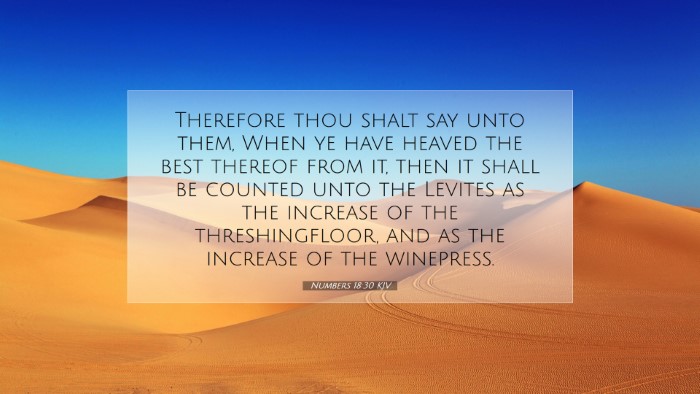Commentary on Numbers 18:30
The verse states: "Therefore thou shalt say unto them, When ye have heaved the best thereof from it, then it shall be counted unto the Levites as the increase of the threshingfloor, and as the increase of the winepress."
Contextual Overview
This passage is situated within the broader framework of the Levitical laws regarding the offerings and the portions allotted to the Levites. The Levites were set apart for sacred duties, and this verse emphasizes the importance of the offerings made by the people. It underscores the principle of giving the first and best to God, with implications for the sanctity and dedication of the offerings.
Insights from Commentaries
Matthew Henry's Commentary
Henry focuses on the distinctive role of the Levites in Israelite society, noting that their sustenance came from the offerings of the people. He emphasizes that the offerings were not merely a duty but an act of worship and appreciation for God's provision. Henry points out:
- Devotion to God: The call to offer the best reflects a heart of devotion and reverence towards God.
- Recognition of Divine Order: This system not only provided for the Levites but also reinforced the social and spiritual structure of Israel, where every tribe recognized and supported the priestly tribe.
- Symbolism of the Offerings: The heaving of the offerings signifies lifting them up to God, acknowledging His ultimate claim over the bounty of the earth.
Albert Barnes' Notes on the Bible
Barnes elaborates on the practical implications of this law and its significance for the community. He notes that:
- Holiness of the Offerings: The 'best' implies not just the physically best but also what is most valuable in the spiritual sense, pointing to the need for holiness in their offerings.
- Understanding of Increase: Barnes points out that the increase from the threshing floor and winepress symbolizes God’s provision for His people, as well as their acknowledgment of His grace.
- Community Responsibility: The people of Israel were called to acknowledge their responsibility not just as individuals but as a community to care for the spiritual leaders.
Adam Clarke's Commentary
Clarke provides a broader interpretative lens, linking this verse to overarching themes of stewardship and divine favor. He notes that:
- Principle of Stewardship: This calls to mind God’s expectations for stewardship. Clarke emphasizes that what we offer to God reflects our understanding of stewardship over divine blessings.
- Typology of Christ: Clarke often connects Old Testament practices with Christological interpretations, viewing the offerings as a foreshadowing of Christ’s ultimate sacrifice.
- Impact on Worship: Worship is not merely ritual but must come from a place of genuine gratitude and recognition of God’s provision.
Theological Implications
The implications of Numbers 18:30 extend beyond ancient Israel, offering rich insights for contemporary theology:
- Stewardship and Generosity: The call to offer the best invites reflection on modern notions of stewardship and the importance of generosity in the life of faith.
- Community and Covenant: Understanding the role of the Levites can renew our appreciation for church leadership and the necessity of supporting those called to minister.
- Symbolism of Offerings: The act of heaving the offering can stimulate discussions regarding how believers dedicate their resources today, not just in material terms but in time, talent, and affection for God’s work.
Practical Applications
This verse can serve as a guide for practical applications for modern believers:
- Excellence in Offerings: Strive for excellence in what we offer to God, mirroring the biblical principle of giving the best of our produce, finances, and time.
- Support for Church Leadership: Ensure active support for church leaders and ministries, acknowledging their role in our spiritual nourishment and community life.
- Reflective Worship: Engage in worship that recognizes and reflects gratitude for God’s abundant provision, fostering a culture of thankfulness and reverence.
Conclusion
Numbers 18:30 encapsulates themes of devotion, community, and divine provision. By examining the insights of Henry, Barnes, and Clarke, we draw closer to understanding the sacredness of our offerings and the importance of honoring God with our best. This passage not only speaks of ancient rites but serves as a timeless call to modern spirituality, where every act of giving can reflect our relationship with God and His covenant with us.


